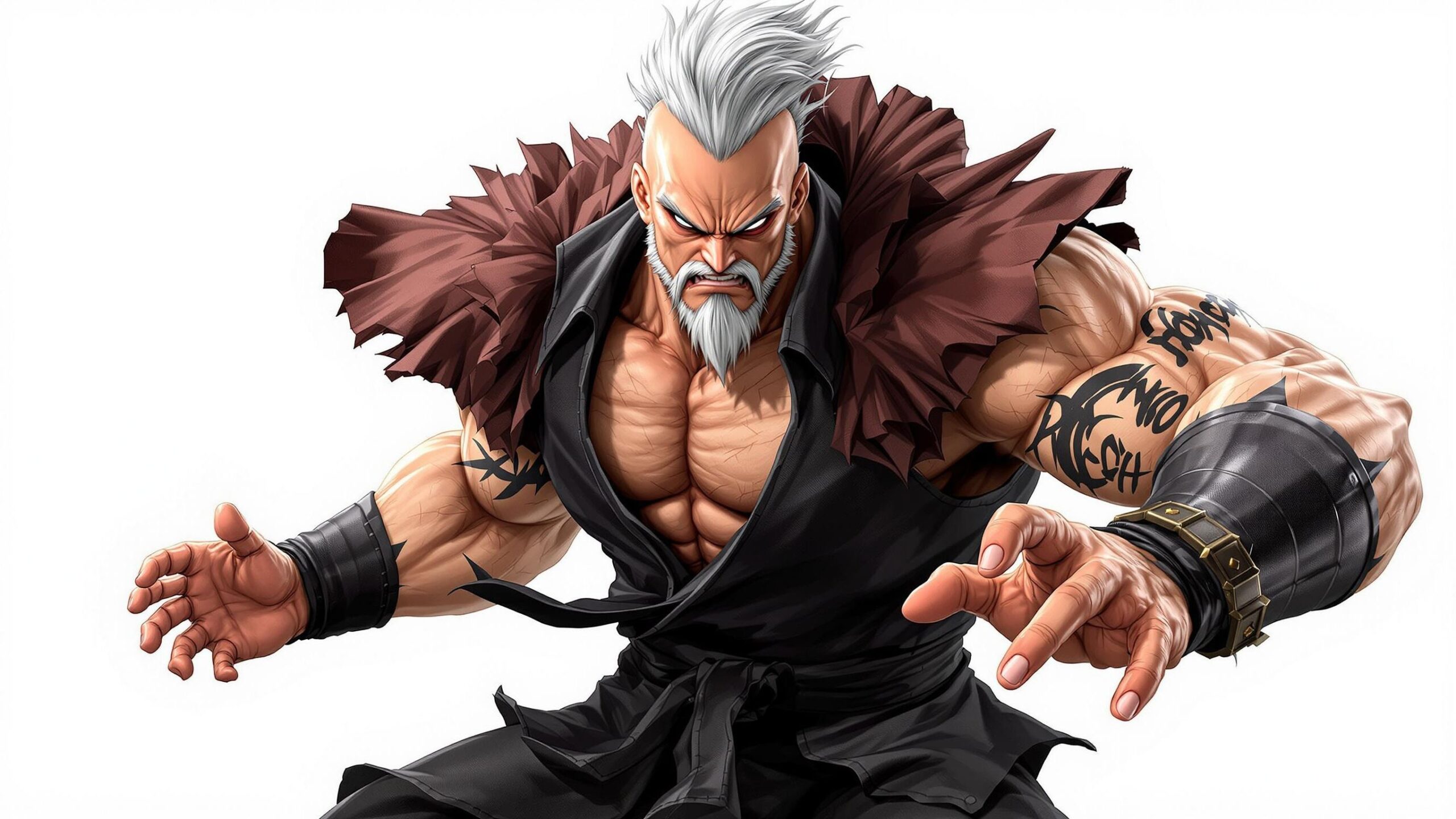Before he was the towering, armor-clad Dark Lord from The Lord of the Rings, Sauron was a shapeshifting deceiver, a master manipulator, and the ultimate chess player. In The Rings of Power, we witness the rise of this ancient evil not through armies and fire, but through whispers, lies, and psychological warfare. Sauron doesn’t need a sword to conquer—he just needs trust. Whether disguised as a “redeemer” or whispering temptations into the ears of the powerful, his manipulation is slow, seductive, and insidious. These are the Top 10 most manipulative Sauron moments in The Rings of Power—scenes where his charisma masked conquest and every word was a step toward domination.
#10: Ingratiating Himself with the Southlanders as “Halbrand”
From the moment Halbrand washed ashore, he began weaving his web. Claiming to be a lowly survivor from the Southlands, he deflected questions about his past and deflected attention with a roguish smile. But behind that charm, he was planting the seeds of control. In Númenor, he subtly steered Galadriel toward his agenda, always playing the humble outcast while manipulating her into restoring his “rightful” place among the Southlanders. What made this move so manipulative was how he used Galadriel’s conviction to fuel his own return. He didn’t force her. He nudged her. He played on her thirst for justice and revenge, knowing she’d do the heavy lifting. When the Southlanders accepted him as king, it wasn’t because of a grand speech—it was because he let others fill in the blanks of his identity. The most powerful lies are the ones people tell themselves, and Halbrand let that happen effortlessly. It was the beginning of a very long con.
#9: Weaponizing Galadriel’s Trauma to Earn Her Trust
Galadriel’s grief over Finrod and her obsession with Sauron’s return make her vulnerable—and Halbrand exploits that expertly. He doesn’t push her directly. Instead, he listens. He mirrors her rage. He validates her fears. In doing so, he becomes exactly what she didn’t know she needed: an ally who shares her burden. But Sauron doesn’t just empathize—he uses her pain. Every conversation with Galadriel is calculated. When she questions herself, he affirms her. When she doubts others, he encourages her. He never argues. He aligns. By cloaking himself in shared trauma, Halbrand builds an emotional bond that makes Galadriel more likely to defend and promote him. It’s not brute manipulation—it’s surgical. And what’s terrifying is how natural it all feels. Sauron doesn’t seduce with romance—he seduces with understanding. He becomes her reflection, and in doing so, he ensures she never questions what’s really staring back at her.
#8: Pretending to Reluctantly Accept the Crown of the Southlands
In a masterstroke of humility-as-theater, Halbrand initially refuses the crown when offered kingship of the Southlands. He insists he doesn’t want power, doesn’t deserve it, isn’t worthy. It’s a calculated move to appear noble while making others push harder for his leadership. He acts like a man haunted by his past—mysterious, damaged, yet “good.” And in doing so, he triggers the protective instincts of everyone around him. When Galadriel insists, he embrace his destiny, he lets her think she’s guiding him toward greatness. In reality, he’s leading her. His reluctance disarms suspicion. What kind of tyrant says, “No, thank you” to power? A brilliant one. Halbrand’s fake modesty is what makes his ascent so smooth. He makes others complicit in his rise. They don’t realize they’re building a throne for a Dark Lord—they think they’re saving a kingdom.
#7: Gently Steering Celebrimbor Toward Ring-Crafting
Sauron’s manipulation of Celebrimbor is a slow burn of genius. Disguised as Halbrand, he takes a keen interest in the Elven smith’s work, offering vague but “insightful” advice that subtly reshapes the future of Middle-earth. He never claims mastery outright—he simply asks the right questions. “Have you considered mixing mithril with another alloy?” “What if power could be preserved rather than drained?” These aren’t commands. They’re seeds. And once they take root, Celebrimbor believes the ideas are his own. It’s a masterclass in ego manipulation. Halbrand praises Celebrimbor’s brilliance just enough to let him feel like the architect of their shared vision, while all the while, he’s guiding him toward the creation of the Rings of Power. It’s not mind control—it’s mentorship with malicious intent. And the worst part? Celebrimbor never suspects a thing. He thinks he’s building hope. He’s actually forging enslavement.
#6: Undermining Elrond’s Loyalty to His People
Sauron doesn’t confront Elrond directly—but his influence over those around Elrond is unmistakable. By encouraging Celebrimbor to rush the forging process and by fueling the urgency around mithril’s potential, he creates a wedge between Elrond and the Elven High Council. Suddenly, Elrond is caught between his loyalty to Durin and his duty to the Elves. Halbrand never tells him what to do—but he engineers a situation where Elrond must make impossible choices. The manipulation is brilliant because it turns a hero’s values into weaknesses. Halbrand exploits Elrond’s empathy, knowing that divided loyalties breed internal conflict. And when heroes doubt themselves, villains win. It’s not a betrayal Elrond sees—it’s a thousand tiny fractures that Halbrand carefully engineers until they become irreversible.
#5: Pushing Galadriel to Defy the Númenórean Council
When Galadriel arrives in Númenor, she faces deep resistance from Queen Regent Míriel and her advisors. Halbrand watches this political struggle unfold, and instead of calming tensions, he quietly pushes Galadriel to lean into her defiance. His influence is subtle but powerful. He drops suggestions that feed her sense of destiny and righteousness—urging her not to give up, even when the Queen denies her pleas. Galadriel, already headstrong, doesn’t need a shove—just a nudge. And Halbrand gives her exactly that, knowing full well that her fiery approach will inflame divisions and force a reckoning. He never openly says, “Challenge the Queen.” Instead, he asks questions like, “Is this truly how you let darkness win?” By using Galadriel’s intensity against her, he destabilizes Númenor’s fragile balance of power and sets the stage for its eventual downfall. It’s masterful manipulation—let others strike the match but provide the spark. Halbrand sits in the shadows while Galadriel unwittingly does the work of chaos.
#4: Pretending to Heal, Not Harm
In one of the series’ most quietly sinister moves, Halbrand carefully crafts the persona of a broken man seeking redemption. Whether it’s offering advice in the forge or feigning inner turmoil about his “past sins,” he presents himself as a man trying to change—haunted but hopeful. This carefully constructed identity disarms those around him. Galadriel believes she’s helping him heal. Celebrimbor sees a potential ally. Even the audience wants to believe him at times. That’s what makes the eventual reveal so devastating. Every kind gesture, every half-smile, every moment of vulnerability—it was all calculated. Halbrand knew that by appearing wounded, people would lower their defenses. They’d project their hopes for goodness onto him. In this way, he manipulates not through fear, but through trust. This deception is not just manipulative—it’s evil at its most elegant. It proves that Sauron doesn’t need to conquer by force. He can conquer by being exactly who others want him to be.
#3: Exploiting the Elves’ Fear of Mortality
One of the central crises in The Rings of Power is the Elves’ fear that their time is ending—that their light is fading. Halbrand plays into this fear with surgical precision. By offering just enough insight into mithril and its supposed restorative powers, he presents himself as a solution to an existential threat. The Elves aren’t just desperate—they’re terrified. And Halbrand becomes their last hope. What makes this manipulation so ruthless is that he never offers guarantees—just possibilities. He poses questions that feel like answers. “What if this alloy could preserve your light?” “What if power could outlive time?” These aren’t ideas of peace—they’re promises of control. And the Elves, noble and wise as they are, walk straight into the trap. Their desperation blinds them to the fact that they’re crafting the very tools that will one day enslave them. Sauron doesn’t need to wage war—he just has to wait for the proud to dig their own graves.
#2: Gaslighting Galadriel in the Reveal
The most chilling and manipulative moment in The Rings of Power comes when Halbrand is finally unmasked—and Galadriel confronts him. But even in the reveal, Sauron doesn’t threaten or boast. He gaslights. He tells her that she brought him back. That she wanted this. That she saw something in him and gave it purpose. He doesn’t just twist facts—he twists her memory. He uses the truth to tell a lie. “I’ve been many things,” he says, “but you—you’ve helped me become more.” It’s a psychological assault as devastating as any sword strike. Galadriel, a hero driven by truth, finds herself unsure of her own judgment. Did she truly see the good in him—or did he make her see it? Sauron doesn’t try to kill her. He makes her question everything she believes. And in doing so, he proves that his greatest weapon isn’t his strength—it’s his understanding of people. This moment is pure manipulation, wrapped in shadow and delivered with devastating intimacy.
#1: Helping Forge the First Rings of Power
Nothing captures Sauron’s manipulative genius more than his quiet orchestration of the Rings of Power. Under the guise of Halbrand, he inserts himself into the Elves’ most sacred project. He advises Celebrimbor just enough to push him toward a breakthrough without taking credit. He never demands control—he offers inspiration. And that’s the trick. The Elves believe they are creating rings to preserve their people, but they’re unknowingly crafting tools of domination. Sauron doesn’t forge the rings himself. He lets the Elves do it—with pride. By allowing them to believe the work is theirs, he ensures they’ll never see the trap until it’s too late. This is manipulation at its most devastating: getting others to build the instruments of their own downfall while thinking they’re saving the world. It’s the moment that shifts the tide of Middle earth forever. And it’s the proof that Sauron doesn’t just win battles—he wins minds.
Sauron’s manipulation in The Rings of Power isn’t loud or monstrous—it’s soft, seductive, and surgical. He doesn’t force. He guides. He doesn’t dominate. He influences. And in doing so, he sets in motion the fall of Númenor, the corruption of the Elves, and the forging of the Rings that will bind all races to his will. These ten moments show that Sauron’s greatest strength isn’t his might—it’s his ability to make others believe they’re in control while he pulls every string. The face of evil has never been so inviting.




